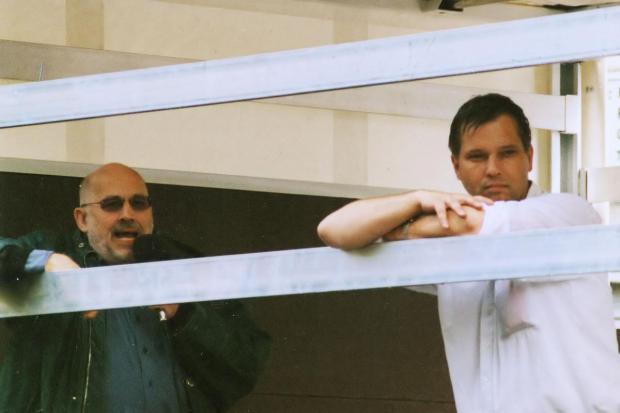Hailed as a liberal, Greece’s prime minister now works from the populist playbook
When Kyriakos Mitsotakis was elected as the new leader of Greece’s New Democracy in early 2016, he was widely hailed as a “Harvard-educated liberal” by the domestic and international press, a departure from the populist leftwing Syriza and their hard-right ANEL coalition partners who governed the country.
Mitsotakis, scion of a powerful and controversial political dynasty, promised to modernise the sclerotic Greek bureaucracy, attract foreign investment and put an end to Syriza’s populism, which he claimed risked “turning Greece into Venezuela” .
A number of Greek academics and journalists promoted his message in the world stage, painting a picture of an Syriza administration that sought to subvert the justice system, appoint cronies everywhere in the machinery of the state, and mollycoddle radicals — even terrorists — who they saw as their natural allies.
Versions of this narrative appeared in the Financial Times, the Washington Post, Politico Europe and elsewhere.
The Greek press happily reflected these narratives. For the first time in its long history, the famously factional and adversarial corps were united in their disdain for the then government, and their support for New Democracy. And so in July 2019, Mitsotakis’ party swept to victory.
When the Covid-19 pandemic hit last March, the new prime minister’s handling of the response won him international plaudits, seemingly confirming his aptitude and potential. Recently, however, a series of incidents have started to cast doubt on the administration’s sensible centrist credentials, and revealed Mitsotakis and his party may be following the populist path of the governments Hungary, Poland and even the United States.
In early March, right before the pandemic took over the international headlines, Turkish President Recip Tayip Erdoğan, in an effort to goad Europe into supporting his operations in Syria, attempted to create tension in the Greek-Turkish borders in Evros by sending thousands of refugees now residing in Turkey to cross them. The Greek state responded by mobilising its army as well as police units to stop the incursion. Vigilante groups were also active in the area. Violence ensued.
In one of the worst incidents recorded, a Pakistani refugee, Muhammad Gulzar, was shot dead. Investigations carried out by Sky News, Der Spiegel, Forensic Architecture and Bellingcat
Nick Waters, one of Bellingcat’s analysts and a former British Army officer, told Little Atoms: “[I was] particularly surprised by the ‘this is completely fake news’ narrative, as I believe the open source and audio forensic analysis demonstrates beyond reasonable doubt that live rounds were fired on the border on 4 March. I would have thought this would be a compelling reason to investigate what happened: even in the unlikely event that it was some kind of undercover operation by the Turkish security services, that should still warrant an investigation on the part of the Greek government. If my neighbouring country was conducting clandestine shooting incidents on my border I'd want to know about it, especially if my troops were 50 metres away when it happened.”
But no such investigation was forthcoming. Instead, what Greek officials did was to ignore all evidence and suggest gullible reporters are aiding Erdogan’s narrative.
One of those officials was Apostolos Doxiadis, the New York Times Best-Selling author of Logicomix. Doxiadis was one of the most prominent Greeks promoting Mitsotakis’ liberal credentials abroad. Appointed by the administration as co-head of the unaccompanied underage asylum seekers initiative “No child left alone”, he’s now taken to attacking critical reporters through the pages of Proto Thema, Greece’s biggest tabloid and a long-time disseminator of anti-refugee and even pro-far-right narratives.
Another prominent and sycophantically pro-government Greek journalist, Yiannis Pretenteris, used his column in Ta New (Greece’s biggest daily) to attack the New York Times’s Matina Stevis-Gridneff, the investigative journalist Apostolis Fotiadis, who covers refugee issues for the Guardian, and me (I wrote pieces for the Independent the LRB at the time) suggesting that we had somehow fooled these international outlets and they were wrong to publish us. So far, so Orban.
The Evros incident, alongside the dozens of credible reports of illegal pushbacks of refugees being carried out by the Greek authorities in both Evros and the Aegean, reached the European Parliament. But when the ministers in charge were grilled about events by MEPs, they acted surprised, suggested that they’d never seen any evidence, and only reacted when a Spanish MEP suggested that the Greek administration resembles a far-right, rather than a liberal one. “I’ve never been called far-right in my life” the Minister of Citizen Protection Michalis Chrisochoidis said, as if this was all news to him.
Out of a 20 million Euro emergency fund for the media, only one per cent went to outlets critical of the government
The events chronicled above were not reported in most major Greek newspapers – unsurprising given the control the government now asserts over the majority of the media is almost absolute. Not only are the majority of the media in Greece owned by just three families (all aligned politically with ND), but more overt means of control are employed too.
For example, on the 15 July, in a letter jointly signed by the International Press Institute, the Media Freedom Rapid Response (MFRR) and the European Centre for Press and Media Freedom (ECPMF) amongst others, the international organisations express their concern about the way an emergency funding package was distributed to media outlets, in exchange for running information campaigns on Covid-19.
It emerged that out of 20 million Euros, only one per cent went to outlets critical of the government, despite the fact they are in some cases much bigger than pro-government ones that received extremely generous support. In one case, the newspaper Documento (whose publisher Kostas Vaxevanis received an Index on Censorship Award in 2013) didn’t receive any funding at all.
“Far from being based on principles of objectivity or fairness, it appears the criteria used to select which Greek media outlets received state funding during the COVID-19 pandemic were at best arbitrary and at worst meant to punish media that report unfavourably on the government,” the letter reads. “Equally worrying were the justifications of government spokesman, Stelios Petsas, as to whyDocumentohad been excluded. The dismissal of Documento’s reporting as spreading ‘fake news’ undermines the site’s independent and critical journalistic work and is not supported by analysis conducted by MFRR partners.”
Government control of the media makes it almost impossible for citizens to be informed not only of the financial scandals already emerging, like a botched voucher programme meant to support scientists during the pandemic, but also what is happening with policing and the justice system.
Government spokesperson Stelios Petsas described Syriza as ‘Erdogan’s Trojan Horse’
Michalis Chrisochoidis, the aforementioned Citizen Protection Minister, recently suggested that the shocking police violence against protesters, young people and refugees Greece is seeing under him, is the fault of people filming it, not the police. This might sound absurd, but if one considers that Donald Trump recently suggested that Covid-19 infections are rising in the US because they are testing for it, it becomes clear where the ideological inclinations of this administration lie.
The justice system, when it’s not enabling the behaviour of both the police and politicians themselves, is cowed. In a recent scandal around the multinational pharmaceutical Novartis and illicit activities like bribing doctors and officials in the US, the company was fined almost $350 million. The case also involved Greece — where the same crimes almost certainly took place. On the Greek side of things, a probe into the case was initiated by Syriza (in a highly politicised manner it must be said). Under the new administration, not only was Novartis not fined, but Greece is currently prosecuting Heleni Touloupaki, one of the state prosecutors investigating the case (profiled here by Politico Europe in 2018).
This followed months of politicians from both New Democracy and KINAL (former PASOK) hounding the witnesses, who were under protection, and threatening to reveal their names. The message is clear: come after us, and we will destroy you.
Meanwhile, the economy, which had already slipped into depression before the pandemic hit in the last quarter of 2019, is about to take a battering. Combined with heightened tensions in the Eastern Mediterranean, it’s providing fertile ground for an even more dangerous narrative to unfold, one which is already starting to emerge from the lips of the ruling party’s more extreme MPs: the idea of an enemy within, that must be suppressed for the sake of the country and national unity. It’s in this spirit that the government spokesperson Stelios Petsas described Syriza as “Erdogan’s Trojan Horse”. And it’s in this spirit that the absurd statements by the minister of Citizen Protection should be taken, as to who else might this “enemy within” be: the left, and those protesting the government’s policies.
All this shouldn’t come as a surprise. New Democracy recruited heavily from the “moderate” far-right since 2012, with Adonis Georgiadis, who came from the far-right LAOS now the deputy leader of the party. But it must be said that all this is not happening without the approval of a large part of the Greek public. It’s a theme that can be found in the foundations of every populist right resurgence, from Italy to Poland and beyond. Mitsotakis still enjoys a wide lead in the polls, at least on the face of it. What’s worse is that the harsh treatment of Greece this past decade in the hands of Europe, and the humiliation felt by its citizens, might have done permanent damage to the country’s psyche.
*An earlier version of this article incorrectly identified Muhammad Gulzar, a refugee who was killed at Evros, as Syrian. Gulzar was from Pakistan.






